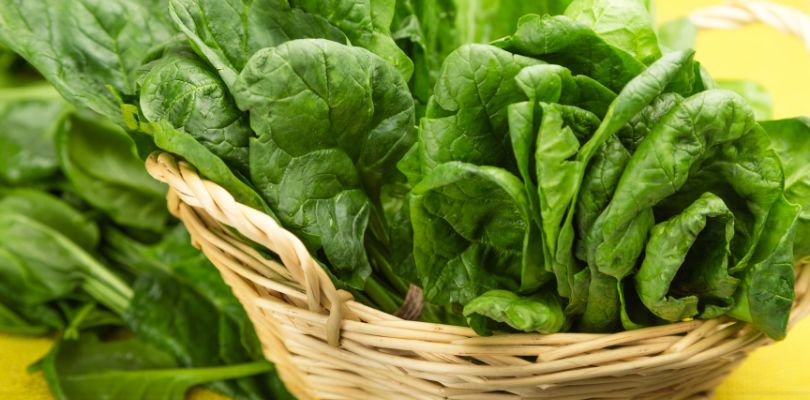Getting the Right Nutrients
Iron is a key mineral that helps your body make red blood cells and carry oxygen to your muscles. If you don’t get enough iron, you may feel tired, weak or dizzy. Adding iron-rich foods to your diet can help keep your energy levels up and your body strong. With low iron can come anemia. To help, there's REBLOZYL (luspatercept-aamt), a prescription medication used to treat certain types of anemia. It works by helping the body produce more red blood cells.
9 Iron-Rich Foods for Your Diet
1. Spinach
Spinach is loaded with iron. Just one cup of cooked spinach provides about 6 mg of iron, making it a great option for vegetarians. It also contains vitamin C, which helps your body absorb iron better.
This article will explore throat inflammation, looking at the signs, causes and treatments, while also exploring EoE. Learn more here.
2. Red Meat
Beef, lamb and other red meats are some of the best sources of iron. A 3-ounce serving of cooked beef contains about 2.7 mg of iron. It's heme iron, the type your body absorbs more easily.
3. Lentils
Lentils are packed with iron, offering around 6.6 mg per cup when cooked. They’re also rich in fiber, which helps with digestion and keeps you feeling full longer.
4. Pumpkin Seeds
A handful of pumpkin seeds makes a great snack, and just 1 ounce provides 2.5 mg of iron. They're easy to sprinkle on salads or add to smoothies for an extra boost.
5. Quinoa
Quinoa is a grain that's high in iron, offering about 2.8 mg per cup. It's also gluten-free, making it a good choice for people with celiac disease or gluten sensitivity.
6. Turkey
Turkey, especially dark meat, is another good source of iron. A 3.5-ounce serving of dark turkey meat contains about 2.3 mg of iron. It’s a lean protein that’s great for heart health too.
7. Tofu
Tofu is a great choice for those who prefer plant-based options. Half a cup of tofu contains around 3 mg of iron. It’s also rich in protein, making it a healthy addition to stir-fries, soups or salads.
8. Chickpeas
Chickpeas, also known as garbanzo beans, provide around 2.4 mg of iron per half cup. You can use them in salads, soups or mashed into hummus for a tasty, iron-rich snack.
9. Oysters
If you enjoy seafood, oysters are a fantastic source of iron. Just 3 ounces of cooked oysters give you 7 mg of iron. They’re also rich in zinc and omega-3 fatty acids, which support brain health.
Treatment Options for Iron Deficiency
If you're not getting enough iron from your diet, there are treatments available:
- Iron supplements: Over-the-counter iron pills or liquids can help boost your iron levels. These should be taken as directed by a healthcare provider.
- Vitamin C supplements: Since vitamin C helps with iron absorption, taking a vitamin C supplement and iron-rich foods or supplements can enhance their effectiveness.
- Dietary changes: Eating more iron-rich foods, especially heme iron from animal sources, can help. Pairing these foods with vitamin C-rich options like oranges or bell peppers can improve absorption.
- Iron infusions: In severe cases, your doctor may recommend iron infusions, which are delivered directly into your bloodstream for quicker absorption.
REBLOZYL
REBLOZYL (luspatercept-aamt) is a prescription medication used to treat certain types of anemia, specifically in people with specific blood disorders. It works by helping the body produce more red blood cells, which can reduce or eliminate the need for blood transfusions in some patients.
REBLOZYL is primarily used for:
- Anemia in Beta Thalassemia: A genetic disorder where the body produces less hemoglobin than normal. REBLOZYL helps boost red blood cell production, reducing the need for frequent blood transfusions.
- Anemia in Myelodysplastic Syndromes (MDS): A group of disorders caused by poorly functioning bone marrow, which leads to insufficient red blood cells. REBLOZYL is used in patients with MDS who require regular transfusions but don't respond well to treatments like erythropoiesis-stimulating agents (ESAs).
By including these iron-rich foods in your diet and following treatment options if necessary, you can maintain healthy iron levels and keep your body functioning at its best.
Read on to learn about the worst foods for eczema.







